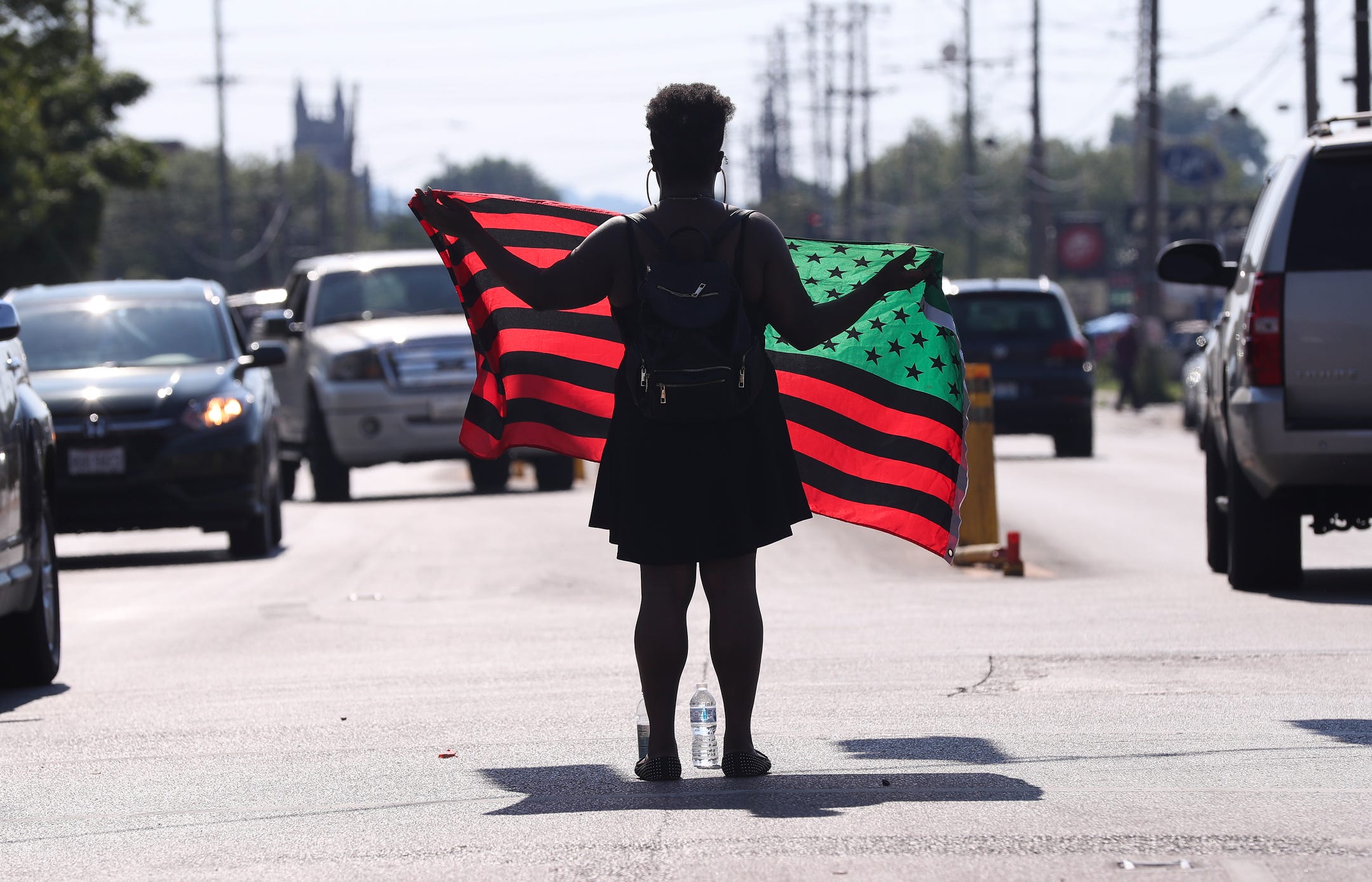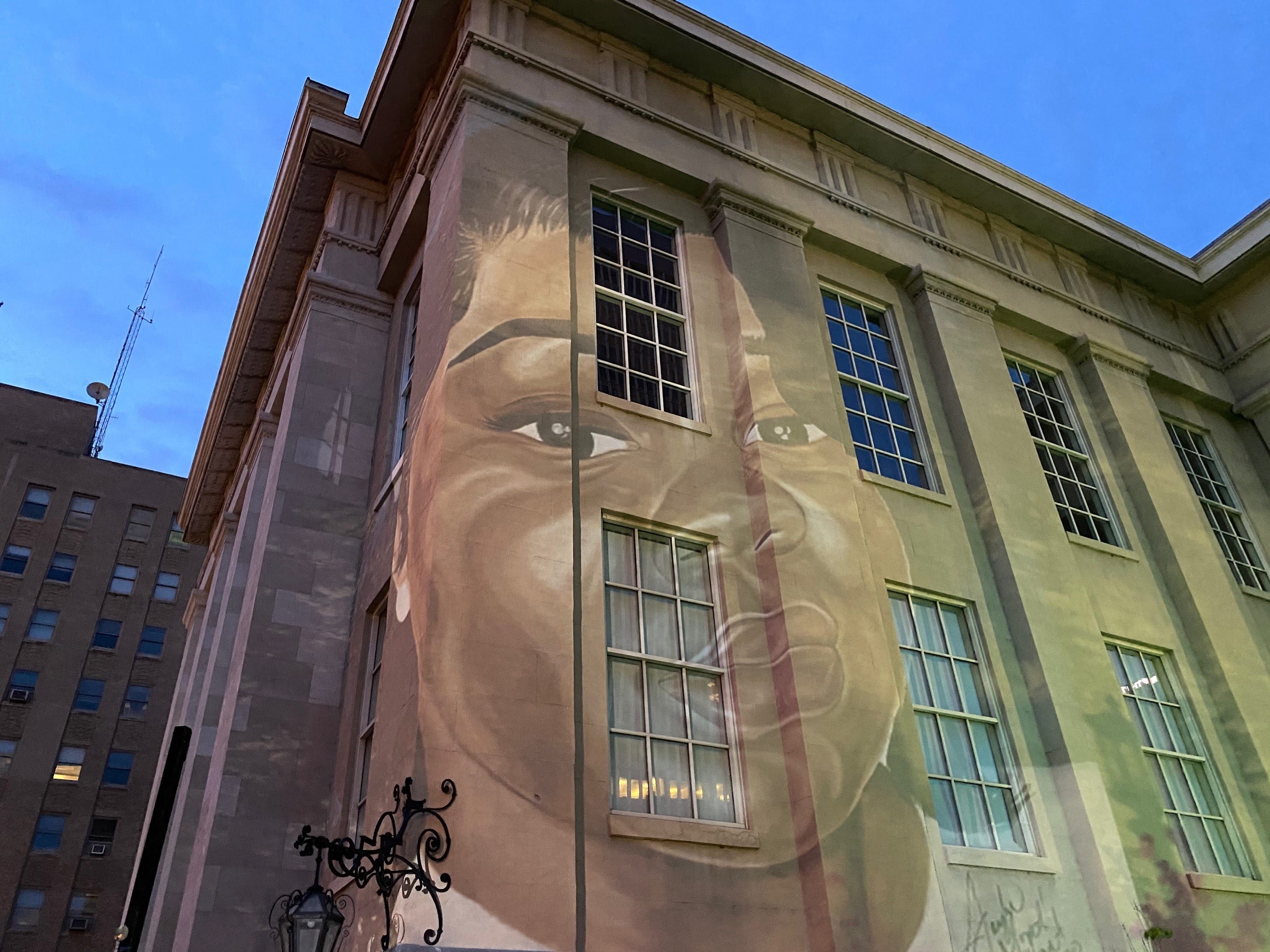
LOUISVILLE, Ky. — The demonstrations on Louisville's streets over the fatal police shooting of Breonna Taylor are having ripple effects across local and national politics.
There have been calls for Mayor Greg Fischer to resign, Republican attempts to paint the unrest in Louisville and elsewhere as Democratic failings, and a push to ban no-knock search warrants like the one obtained before the raid at Taylor's apartment.
"The Louisville protesters' movement became more than just a local movement — Breonna Taylor's name is known nationwide," said Steve Voss, a political science professor at the University of Kentucky. "The case is one of the couple that really took the Black Lives Matter movement to the next level."
State Rep. Attica Scott, the only Black woman in the Kentucky legislature, said she has seen the power of the protests, now in their 100th day in Louisville. More rural areas in the state, such as Brandenburg and Ashland, are holding unity marches, she noted.
"There's this influence that's happening locally, right here in Louisville but there's also influence that's happening across the state from the Appalachian Mountains to rural Western Kentucky," Scott said.
The Louisville Democrat said that has helped build bipartisan support for discussing a statewide ban on no-knock warrants, which allow police to enter someone's premises without announcing themselves.
'We are a different newsroom': How The Courier Journal has covered 100 days of protests
On June 11, just two weeks after demonstrators first took to the streets over Taylor's shooting, the Louisville Metro Council unanimously passed such a ban.

In August, Scott filed "Beonna's Law" to ban no-knock warrants, require officers to activate body cameras when serving a warrant, and require drug and alcohol testing for officers involved in a deadly incident. And Senate President Robert Stivers, R-Manchester, has proposed to limit the use of no-knock warrants.
"I truly believe that this sustained protest has really shifted political discourse," said Scott, a former Louisville councilwoman who has participated in the protests. "It's gotten House and Senate leadership talking about some of these issues that folks are protesting about as it relates to racial justice."
Both within Louisville and statewide, others have folded the daily demonstrations into a national narrative of Democratic mayors not doing enough to keep their citizens and businesses safe from flashes of violence.
Louisville Councilman Anthony Piagentini, R-19th District, said the protests have highlighted historical inequities facing Black Louisvillians and how policies can be reshaped. But, he said, they’ve also been overshadowed at times by non-locals who aren’t invested in the community.
Overall, Piagentini, who has supported a GOP-backed no-confidence vote on Fischer, said the protests and the city's near record homicide total have revealed a lack of leadership from the mayor, who was elected in 2010.
“This isn't the first time in a 10-year tenure, that we have set records for violence,” Piagentini said. “You need to objectively ask yourself: In 10 years, are neighbors in the West End better off? I think the answer, clearly and objectively is no. Do we have better community-police relations? And the answer is no."
Read this: 100 days of Breonna Taylor protests have gained attention. Now, Black leaders want investment
And in Frankfort, state Senate GOP leadership held a press conference this week to decry Fischer's handling of the protests and suggest the General Assembly hold a special session to address public safety.
In response, Fischer said his administration has been taking action and listed changes he'd like to see from the state legislature: "I'm glad to see this sense of urgency from our state legislators. We share it."
However, on the national level, Kentucky's most powerful politician has not said much about the Louisville protests.
On May 29, following the first night of protests in Louisville in which seven people were shot, Senate Majority Leader Mitch McConnell said, "Kentuckians cannot and will not accept violence and chaos on our streets" and urged the "senseless behavior" to stop.
But since then, McConnell has not often discussed Louisville when talking about protests — instead opting to decry Democratic leadership in cities like Seattle and Portland, Oregon, over their handling of the demonstrations.
McConnell, who faces Democrat Amy McGrath on November's ballot, has run campaign ads saying he will stand up to "the mob."
President Donald Trump appears to be on the same page as the Kentucky Republican.
Like McConnell, Trump also mentioned Louisville on May 29 in the form of a tweet.
"Looting leads to shooting, and that’s why a man was shot and killed in Minneapolis on Wednesday night — or look at what just happened in Louisville with 7 people shot," Trump wrote, although looting had not occurred in the city at the time. "I don’t want this to happen."
100 days of protests: Looking back at moments that have shaped the Breonna Taylor movement
These days, though he continually alleges that all "dangerous" cities are run by Democrats, he has often left Louisville out of his critiques — instead opting to attack Chicago, Portland and most recently, Kenosha, Wisconsin.
According to Voss, that may be because Taylor is a "sympathetic female victim" who has been a major "motivating force" in the Black Lives Matter movement. It would be unwise for Trump or other federal officials to use Louisville, her hometown, as an example of lawlessness with the November presidential election approaching, he said.
"If you're trying to get people focused on the disorder and the law breaking, if you're on that side, you really don't want to be talking about Breonna Taylor when you have other cases that are are more persuasive," Voss said.
In Louisville, Jecorey Arthur, an incoming Democratic councilman, said Black people have been mistreated in the city since it was founded in the late 18th century.
Today, he said, Black Louisvillians are "at the very bottom of our society" in terms of wealth, ownership and incarceration rates, among other things.
Beyond the protests, Arthur said it is important for the city's Black caucus to be proactive rather than solely reactive in tackling issues that plague Black Louisvillians — such as an impending higher rate of job displacement over the next decade due to automation in the workplace.
Related: Louisville Democrats say politics motivate GOP's 'law-and-order' push
"We have nowhere to go except for the graveyard or the prison yard, in some cases," he said.
Black Louisvillians have been "ringing the alarm" on these issues for a long time, Arthur said, while many politicians were "trying to press the snooze button."
"But when the protests popped off — now all of a sudden, the issues are staring you in the face and yelling at you and forcing you to address them."
Contact Ben Tobin at bjtobin@gannett.com and 502-377-5675 or follow on Twitter @TobinBen. Reach breaking news reporter Sarah Ladd at sladd@courier-journal.com. Follow her on Twitter at @ladd_sarah.